Curriculum Maps
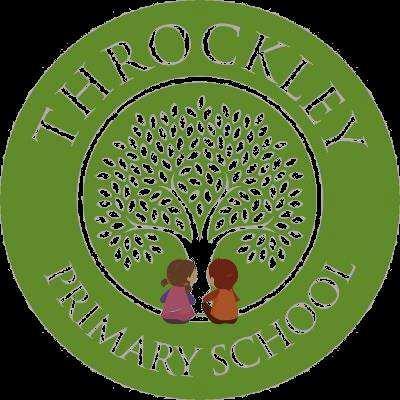


Literacy:
High quality, purposeful texts have been deliberately chosen to inspire the learning in Nursery. Children will listen to stories from our 8Must Read9 list and join in repeated refrains and important parts of the story as they become more familiar.
Children will begin to recognise their 8special letter9 around the nursery environment.
Children will be given lots of opportunities to develop their mark making around the nursery and in the outdoors.

Communication and Language:
This half term, Nursery will have a huge focus on children being able to express and/or articulate their needs.
Children will use their 8All About Me9 books to share information about themselves and their family.
Children will be encouraged to listen during small group story/circle time sessions and encouraged to share their thoughts.

Expressive Arts & Design:
Children will have lots of opportunity to express themselves creatively. They will learn how access different areas of the classroom to test out their skills. There will be daily opportunities to paint, draw and create.
Adults will support children in learning how they can use different media to stick and join materials together.

Mathematics:

Children have free access to musical instruments where they can explore to make different sounds.
Children will begin to sing songs and chants that include mathematical elements, including numbers.
The Nursery will have lots of physical objects that can be lined up and/or grouped and counted.
Children will also look at different ways of grouping objects such as by colour, shape or size.
Children will support with daily tasks that include mathematical elements – handing out cups at milk time, counting when we line up, sorting and matching objects when tidying up.
Nursery Curriculum
Map

Autumn One

Additional Information:
Please can all parents ensure that children have their name on all their belongings (clothes, packed lunches, water bottles etc.)
Remember to send in a pair of named wellies for your child if they do not already have a pair in Nursery. We will be outdoors in all weathers and don9t want the children to get wet feet! It would be great if you could support your child with putting coats and shoes on independently.
Understanding the World:


The Nursery children will be looking at their 8All About Me9 books alongside their teacher/key worker to share the things that make them special. They will be encouraged to talk about the people and things that are important to them.
Children will create visual representations of themselves and explore what is the same and what might be different about themselves and their peers.
Nursery will celebrate festivals and celebrations from cultures around the world.
Physical Development:

Children will develop fundamental movement skills in PE sessions and outdoors. They will develop their movement skills including crawling, climbing and jumping.
Children will develop their fine motor control by playing with tweezers, threading activities and mark making tools.
Children will try and put on their coat independently by using the 8flip over9 method.
Personal, Social and Emotional Development:

Children will be supported with their transition into the nursery setting. They will be encouraged to explore the new environment.
The children will learn about the rules and expectations in Nursery.
Children will be encouraged to share with others and will learn that they can seek support from familiar adults.
Mathematics:
During this half term, Pupils will build on previous experiences of number from their home and nursery environments, and further develop their subitising and counting skills. They will explore the composition of numbers within 5, and will begin to compare sets of objects and use the language of comparison.
The children will hear and join in with the counting sequence, and connect this to the 8staircase9 pattern of the counting numbers, seeing that each number is made of one more than the previous number.
Expressive Arts & Design:
Throughout this half term, children and teachers will discuss planning of an activity as part of daily talk encouraging them to consider what resources they need to collect for a task, developing independence. Identification of those children still unable to manipulate scissors will take place.
Children will learn how to use glue sticks and PVA glue to combine 2 or more objects together.
They will have opportunities to use 3d materials/construction materials and combine to make structures through continuous provision activities.
Communication and Language:
Reception children will learn about 8talk rules9 and oracy, and will understand why listening is important. Children will understand that participation is an expectation and will be encouraged to do so. They will listen attentively to stories and will respond to what they hear with relevant comments and questions. Children will begin to understand and follow prepositions within instructions.
Literacy:

This half term, the children will begin to work through the Read Write Inc. scheme. They will begin to identify the initial sound in words and identify those with similar initial sounds.
The children will begin to segment and blend sounds together using sounds that are consistent with their phonic knowledge.
They will use mark making equipment during independent play, using some recognisable letters. Reception will continue to develop a love of reading through listening to whole class texts and our new 8Must Reads9, which they will become very familiar with.
Reception Curriculum Map
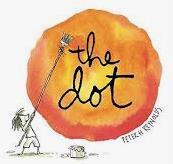
Autumn 1





Physical Development:
This half term, the focus in gymnastics. Children will develop confidence in fundamental movements. They will experience jumping, sliding, rolling, moving over and under apparatus. Reception will develop coordination and gross motor skills.
The children will also continue to develop their fine motor skills through carefully planned activities designed to strengthen muscles in the hands which help them to write, paint and hold objects.
Understanding the World:


As part of our exploration about the world around us, Children will listen to a range of stories that are set in the past, present and future. They will explore how Reception differs to Nursery and get a chance to explore more of the school grounds.
Children will investigate signs of autumn and winter through outdoor learning in forest school. They will be able to name a variety of common plants and flowers from their home and school grounds and observe how he change in weather affects their growth.
The children will learn about and take part in a number of festivals which celebrate the rich cultures and diversity of Throckley.
Personal, Social and Emotional Development:
Reception will spend the first term learning about the Zones of regulation. Within this unit, children will develop strong relationships with peers and familiar adults.
They will learn how to make friends and play co-operatively. They will also try different ways of resolving conflict. They will be supported to better understand their own feelings and begin to manage their emotions.
Additional Information:
Reading is a huge focus in Reception, please ensure you are practising at home and leaving a comment in your child9s reading record. Forest School will continue to take place on a Monday and PE is a Thursday for this half term. Please ensure your child is not wearing earrings on this day.
Please ensure your child is wearing the correct uniform each day. This includes correct footwear. Our uniform policy can be found on the website.

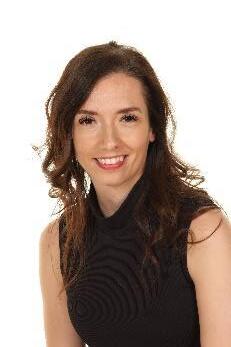
Welcome to Year 1 The Year 1 team…


Important information

PE – will take place on a Monday and Thursday. Please ensure PE kits are in school and all earrings are removed beforehand.
Forest School – will take place at different points throughout the week. Please can children bring, to remain in school, wellies or sturdy shoes/trainers (they will get muddy) and a waterproof coat/jacket.

Reading books – please ensure reading books and reading records are brought to school each day.
Water bottles – children will need a filled named water bottle in school each day.
Year 1 Curriculum Map
Mathematics: In mathematics, we will be begin by consolidating and recapping our knowledge of some of the concepts taught in Reception: composition, shape, space and measure.
We will then move on to learning to count to 100. We will be using lots of games and songs to support our learning in this area.


Autumn 1
Science – Seasonal Changes:

In science, our first topic is Seasonal Changes.

Geography – What is the weather like where we live?

We will be naming and locating the four countries and capital cities of the United Kingdom and its surrounding seas before discussing their seasonal and daily weather patterns.
We will build on our knowledge of weather charts learned in Reception.


The children will build on their learning from Reception about weather charts by moving on to look at the different seasons and comparing the weather, the length of the days and how our clothes might even change. We even have a brand new weather station to play with!

Art


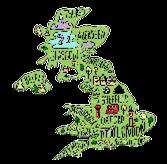
History - How do we get around?
In history we will be building on our knowledge of transport learned in the Early Years. Our focus will be on trains, what transport was like before the invention of the train and why the train is important. The children will also learn who George Stephenson was and why he is significant.
* Links to DT



In art, we will explore materials and tools for mark making with paint using primary colours. This builds on the children being able to hold drawing tools correctly which they learned in the Early Years.

DT- How can you stop a tower from toppling over?
The children will build structures that are freestanding using a range of different materials.

English: We will begin the year by exploring several different books. The children will enjoy listening to their teachers read excerpts from these book. They will build on their writing skills learned in Reception to write captions and short simple sentences for pictures relating to the books. They will then move on to explore the book 8Froggy Day9. The children will use this text as a basis to explore vocabulary around the weather which they will use to write and deliver a simple weather report.
* Link to science and geography


* Links to history, computing and science

Phonics - Children will have a daily phonics lessons and will continue to be taught to read using the Read Write Inc phonics scheme. They will learn 3 new sounds each week and will practise reading words containing new and previously taught phonics through decodable books matched to their ability.
ICT/Computing: The children will be using Project Evolve to explore: self-image & identity, online relationships, online reputation, online bullying, managing online information, privacy and security and copyright & ownership. They will further develop their mouse and keyboard skills using iLearn. Builds on EYFS computing

RE – How is belonging expressed and demonstrated?

The children will relate their own understanding of belonging to what believers from different traditions understand about belonging. They will look at how Christians in particular express their sense of belonging, community and identity and at how the church welcomes children into its family.

Music: Pulse, rhythm, performing and listening and appraising

In Autumn term, the children will play games, perform notation as body percussion, identify a variety of instruments by their sound and use them to play simple notations, listen to orchestral/folk/modern music, identify and compare the moods, emotions and genres of two songs. Their learning will culminate in a performance of a folk song.


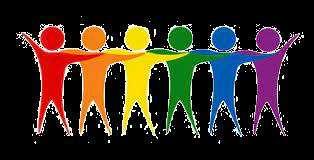
PSHE: Physical Health and Mental Wellbeing
The children will begin the year by focussing on their Mental Wellbeing. They will learn, through the Zones of Regulation curriculum, how to recognise their feelings and regulate their emotions.

Reading at home:
PE – Gymnastics:

We will start the year with gymnastics. We will learn through a range of movements and exercises practise and develop our agility, balance and co-ordination.
Builds on EYFS fundamental skills.

To reach their full potential, children should read aloud with an adult at home every night. Reading develops skills which are invaluable across the whole curriculum and this extra practice can have a significant impact on the amount of progress made, and the speed in which it is made. When you are reading with your child, please remember to sign in their reading record.

Homework: In Year 1, in the Autumn term, children will receive one piece of homework each week. This will focus on their phonics learning and will be a consolidation of what we have been learning in class that week. Homework will be sent out on Friday afternoons and will be required back in school by the following Friday. Please encourage and support your child with their homework by making sure it is completed.
THRIVE at Throckley


Our Wellbeing – Children will focus on the value of caring while thinking about their ownwell-being.Theywillbetakingpartinayogasessionand developingstrategiesforself-care.
Knowledge organisers which outline the key content covered in History, Geography, Science and R.E. will be uploaded onto Seesaw. Please take a look and quiz your child on their newly acquired knowledge!

English:
Year 2 Curriculum Map


Welcome back, Year 2! In our English lessons this half term, we will develop and embed our writing skills from Year 1 (using correct sentence structure and letter formation). We will enjoy one of Julia Donaldson9s most famous stories – Superworm! We will begin to explore the use of powerful adjectives and similes to create a detailed and descriptive fact file all about our wriggly friend! As our next adventure, we will be exploring the text 8The Lighthouse Keeper9s Lunch9 by Ronda and David Armitage. The children will invent and design their very own disgusting sandwich, to deter the pesky seagulls from stealing Mr Grinling9s lunch! We will create a set of detailed instructions, explaining how to make the sandwich correctly. Within this, we will explore the use of imperative verbs, adverbs and fronted adverbials.


Autumn 1
Mathematics:
In mathematics, we will begin by consolidating our knowledge of numbers up to 100 and recognising the place value of each digit in 2-digit numbers. We will revisit partitioning numbers into tens and ones so we are ready for the challenge of non-standard partitioning. We will become confident using numbers within addition and subtraction calculations whilst mastering our fluency of number bonds to 10 and 20.

Science:


Geography
What is special about our local coastline?

This unit builds upon our Year 1 knowledge of local landmarks, human and physical geographical features of the local area and use of aerial maps. We will develop our previous knowledge of the UK countries, capitals and surrounding seas using a map, atlas or globe to locate them. We will use simple compass directions (North, South, East and West) and locational and directional language [for example, near and far; left and right], to describe the human and physical features of our local coastlines.







Uses of Everyday Materials
We will be working hard in science to distinguish between objects, materials and properties and group them accordingly. We will identify and compare the suitability of a variety of everyday materials for particular uses such as building a house or making a raincoat. We will be discovering how the shapes of solid objects, made from some materials, can be changed by squashing, bending, twisting and stretching.


Design Technology
How strong is a piece of paper?

Children will build upon their knowledge of properties of materials and choose materials with appropriate characteristics to make paper stronger. We will then build structures using these materials to make them stiffer, stronger and more stable.

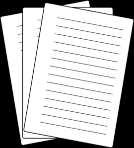
Computing:
In autumn, we will utilise computing systems and networks to discuss ways to stay safe online and be a responsible user of technology.

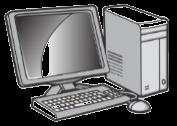
RE: How do religious people express their sense of community?
We will explain the symbolism within baptism and the reasons why Christians have services of baptism. Children will explore the importance of worship for Christians and make connections between their own experience and Christians9 beliefs about belonging, community and identity.
PSHE: Zones of Regulation
This half term, we will be discussing mental wellbeing. We will explore our emotions and gather tools to help us manage and regulate them.

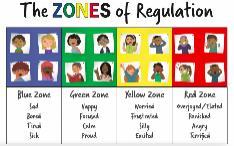
Basic skills tests: Every week, we will be testing our maths basic skills on a Friday morning. We will send the focus each week out to you in reading records.
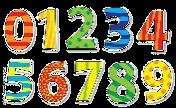
Music:

Phonics:

We will start the year off by revisiting and embedding our knowledge of Set 2 and Set 3 sounds and continue to work on segmenting and blending words. We will then apply these skills within our reading to promote fluency and pace.

Thrive:
This half term, we will focus on 8Our Wellbeing9 by having a 8Wellness Wednesday9 each week. The children will participate in activities to support their mental and physical health.

PE: Gymnastics
This term, in one of our lessons we will be focusing on developing our gymnastics skills, performing basic actions with control and consistency at different speeds and on different levels. We will challenge ourselves to develop strength and flexibility. In our other lesson we will be developing our fundamental skills with a focus on core strength.

History:
We are embarking on a journey through history to explore Grace Darling. We will be using a range of primary and secondary sources to understand why Grace Darling was a local hero.

We will build upon our knowledge of pulse and rhythm through active listening, appraising and singing & performing.

Homework & reading at home:

In Year 2, children will have a basic skills focus each week and receive homework on Seesaw every Friday that will be linked to the focus. This is required to be completed by the following Friday. To reach their full potential, children should be reading aloud with an adult at home every night.

Art:
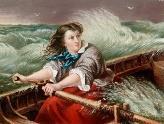

This half term, we will build upon our drawing skills and develop our understanding of stippling, cross-hatching and smudging.
A note from me:

Hello! I am Mrs Driver and I will be your child9s teacher this year. I am really looking forward to getting to know you all. Please feel free to contact me if you have any questions or concerns.
Knowledge organisers which outline the key content covered in History, Geography, Science and R.E. will be uploaded onto Seesaw



English: The reading focus for this half term will be on 8The Great Kapok Tree9 by Lynne Cherry. This links to our learning in geography lessons as we explore the Amazon Rainforest. Children will build towards a written outcome by describing the rainforest setting. Applying different reading skills, children will broaden and deepen their understanding of vocabulary, inference, predictions, explanations, retrieval and summaries in our whole class reading sessions where they explore the book 8The Boy Who to Grew Dragons.9

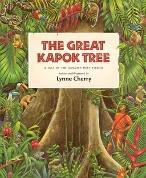
Year 3 Curriculum Map
Autumn 1
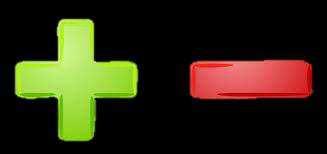
Mathematics: In mathematics, children will begin looking at adding and subtracting 3 addends. They will use appropriate vocabulary to write mathematical stories. Children will use their knowledge of place value to add, subtract, order and compare numbers up to 1000. They will use this to support their understanding of conversion and estimation of length.

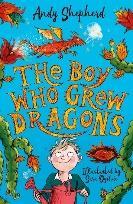
RE – How and why do we use signs and symbols in everyday life?

Children will revisit their prior knowledge of signs and symbols in Christianity and Sikhism to support their new learning about the use of symbols in everyday life.



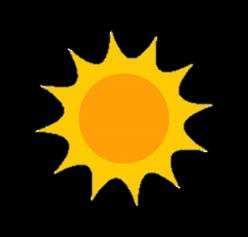
Science – Light: This half term children will learn about the concept of light and how darkness occurs in the absence of light. They will explore reflection and shadows as well as how to protect their eyes from sunlight.



History – How did human civilisation change during the Stone, Bronze and Iron Age? This unit builds upon children9s learning of innovation from Year 1 and 2. Children will explore the changes Britain over time and use chronological knowledge to order events. Using primary and secondary sources, they will compare everyday life in the Stone Age and explain the development of civilisations.
Art
– Drawing and Painting




Children will use a range of materials including paint to create different marks. They will mix colours using a variety of both primary and secondary colours Using varying painting techniques, children will explore tonking and sgraffito.
DT - Textiles

Geography – How significant is the Amazon Rainforest? This unit builds upon children9s learning of forests in Year 2 Spring term. They extend their knowledge of lines of latitude to include the Tropics of Cancer and Capricorn. Children will also increase their understanding of climate by learning about the tropical climate zone and their understanding of climate change. New learning encompasses the layers of a rainforest, indigenous tribes and deforestation




Children will be designing and creating their own juggling ball using different materials and a running stitch. Once made, they will evaluate their product.

Computing: This half term, children will apply their prior learning to deepen their knowledge of online safety through the ProjectEVOLVE scheme. They will explore computer networks and systems to gain an understanding of how technology works.

PSHE – Zones of Regulation
Children will develop their understanding of mental health and well-being through the ZOR scheme. Over the coming weeks, children will regulate their own emotions using a bank of strategies.

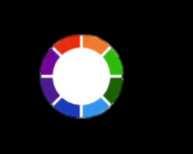
Music: Children will create 4 bar rhythms using crotchet, quavers, minims and rests. They will perform rhythms at two different tempos (andante and allegro) using a backing track. Children will listen to music in 4/4 and 3/4 and tap along, keeping a steady tempo. They will identify ostinato patterns and be introduced to semibreves.

Times Tables and Basic Skills:



Children should all be able to quickly recall addition and subtraction facts to 100 and the 2, 5 and 10 times tables. This year we will be catering our learning towards the 3, 4 and 8 times tables. It is essential for children to be accurate and quick with tables so that they can confidently access the full maths curriculum. Keep practising for your weekly Friday tests!

PE – Invasion Games: Children will play basketball in which they will combine speed and direction with stopping under control. They will explore the fundamental skills of attack and defence while working as a team.
Welcome to Year 3:
Hello! Welcome to Year 3- we are so excited to get the year going. Miss Dockey, who is a reading and iced-coffee enthusiast, will be teaching Year 3 Green, Mr Godfrey, who loves running and Liverpool, will be teaching Year 3 Blue and Miss Cannell, who is a huge Newcastle United fan, will be supporting Year 3.

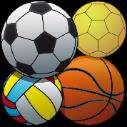


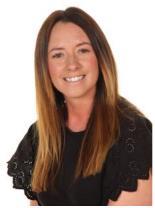


French: Children will develop their greetings when meeting others, recognise four Paris landmarks and five classroom instructions. They will revisit French stories and songs from EYFS and KS1.




Reading and Spellings at home:
To reach their full potential, children must be reading aloud with an adult at home every night. Reading develops skills which are invaluable across the whole curriculum and this extra practise can have a significant impact on the amount of progress made, and the speed in which it is made. When you are reading or practising spellings with your child, please remember to sign in their reading record for a chance to win fantastic prizes.
Homework: In Year 3, children will receive two pieces of homework each week. They will have one piece of English or maths homework and one piece focused on times tables/basic skills practice. Homework will be sent out on Monday and will be required back in school by the following Monday morning!

Thrive- Our Wellbeing!
As part of Thrive, this half term, pupils will be celebrating Autumn Equinox by spending the full morning of lessons outside.

Knowledge organisers, which outline the key content covered in History, Geography, Science and R.E. will be uploaded onto Seesaw. Please take a look and quiz your child on their newly acquired knowledge!
English:
In English, children will be reading Harry Potter and the Philosopher’s Stone by JK Rowling. Using the chapter – The Vanishing Glass as inspiration, children will write their own fantasy stories that include speech. Following this, children will use the event of the troll invading the school as inspiration to write a newspaper report. Throughout the term, children will be examining JK Rowling’s writing styles and choices as an author to aid them in developing their own authorial voice and making language and vocabulary decisions based on the formality of the tone they wish to portray.
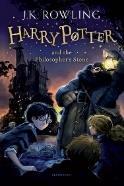
Year 5 Curriculum Map
Autumn Term 1

Science – Biology
Living Things and their Habitats: Building on their
knowledge of vertebrates, children will explore a range of life cycles for mammals, reptiles and amphibians. They explore the life cycles of plants and the difference between plants that reproduce sexually and asexually. The term will also include a plant dissection where children will be able to identify all of the parts of a flowering plant.

Art.
Children will be learning about the technique of subtractive drawing. They will combine this with previous drawing techniques and look at the work of Hundertwasser. Using organic lines and spirals, along with bright colours and overlaying, pupils will create abstract landscapes.


Mathematics: In mathematics, children will build on their year 4 learning about fractions and decimals exploring tenths and hundredths. They will be linking their knowledge to money to solve a range of problems that involve addition and subtraction such as calculating totals and finding change. They will also investigate the links between decimals and converting units such as g to kg, ml to L and cm to m.

Geography – How important are lines of latitude and longitude? Children will be taken on an adventure around the world building upon their understanding of biomes and climate zones that they studied in previous years. They will be able to explain why climate and biome maps may differ and be introduced to time zones.
History – How did our local area affect the Battle of Newburn Ford?
Children will travel back to the 1600s to understand what caused the battle and they will study key historical figures, such as Charles I, Oliver Cromwell and Henry VIII. Children will learn about the importance of religion during the 1600s and how it shaped society.

Design and Technology - How can I make an in season meal?
Children will food that is currently in season and adapt a recipe to prepare an in-season meal that is tasty and nutritious.

RE – Why is worship so important to believers? Children will study the key features of worship and what worship means to believers. They will explore the place and importance of prayer in worship for faith communities.

Children will consider how they can take care of their mental health. They will understand the importance of being active, eating well and making informed choices. Children will also explore online safety.

French:


ICT/Computing:

Building on their learning about computing networks in Year 4, children will explore email, Bluetooth and online collaboration. This term, we will also cover online safety including understanding their online reputation and how to keep information secure and private.

Times Tables:


PE – Swimming and NUFC

Children will learn to float and move through water using a range of strokes such as front crawl and backstroke. Additionally, they will learn how to perform safe self-rescue techniques.
Coaches from Newcastle United Football Club will be delivering football lessons to Year 5 pupils.

Reading and Spellings at home:
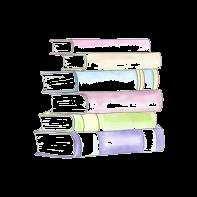

This half term, Year 5 will revise greetings, classroom instructions and introductions. They will learn the numbers 13-21 and explore telling the time (seconds, minutes etc). This knowledge will allow them to construct evermore complex sentences in French.


Now children can quickly recall all times tables up to 12 x 12 = 144 it is essential for children to practise so they do not forget and maintain their speed and accuracy. This will help them confidently access the full maths curriculum. We will have weekly times tables tests on Fridays to check children’s recall so keep practising regularly at home!
To reach their full potential, children must be reading aloud with an adult at home every night. Reading develops skills which are invaluable across the whole curriculum and this extra practise can have a significant impact on the amount of progress made, and the speed in which it is made. When you are reading or practising spellings with your child, please remember to sign in their reading record for a chance to win fantastic prizes!



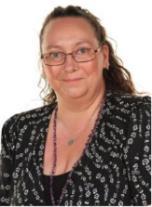
Homework: In Year 5, children will receive one piece of homework each week relating to work we have done that week. Homework will be sent out on Friday afternoons on Seesaw and will be required back in school by the following Friday! Children can also take a paper copy if they would prefer. Please encourage and support your child with their homework by making sure it is completed as this supports their learning in school.


Welcome to Year 4
The year 4 team this year is Mr Cartner (4G class teacher), Mrs Longstaff (4B class teacher) and Mrs Newton (Teaching assistant).
English:

We will start the term by exploring 8Charlie and the Chocolate Factory9 by Roald Dahl. Year 4 will step into Charlie9s shoes to create a scrumptious diary entry all about the marvellous factory, filled with treats as far as the eye can see! In our reading sessions, we will use vocabulary, inference, prediction, explanation, retrieval and summary to understand a range of text types.

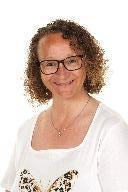
Year 4 Curriculum Map
Autumn 1
Mathematics:
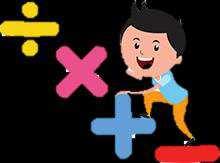
Children will begin this half term by recapping what they already know about column addition and subtraction. Children will consolidate their learning in this area with regrouping in the ones and tens columns and then apply these written methods to solve real-life, contextualised problems. For the first time, children will look at 4-digit numbers and use these when identifying values, ordering, comparing and rounding.

History: How have the Ancient Greeks influenced our society?
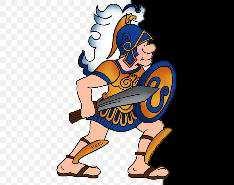
In history, children will understand how we know about the Greeks by linking to their knowledge of primary and secondary sources. Year 4 will look at the typical daily life of an Ancient Greek and decide whether they were treated equally in their society. This half term will end by looking at what the Ancient Greeks did for us in terms of inventions and how they have influenced events such as the Olympics.
Geography: Location, location, location – Where is your ideal home?

This half term, children will use their prior knowledge of position and direction to describe land use in prehistoric times. We will explore hill forts, and other settlements using grid references and maps. Our new knowledge and understanding will help us to write an advert for a prehistoric cave dwelling!

Science (Biology): Living things and their habitats

Children will use classification keys to classify groups and animals and explore human impact on the environment. They will recognise that living things can be grouped in a variety of ways and explore environments to see how they can change, and that this can sometimes pose dangers to living things. We will research and explore the work of Gerald Durrell.



DT: Food and nutrition
Throughout this term, we will explore the difference between freshly made food and mass- produced food. We will look foods that are part of a healthy diet but often bought pre-made and can contribute to poor physical and mental health.
Art: Drawing

Year 4 will refine their drawing skills, focusing on lines and detail. They will select drawing materials based on their understanding of the possible marks that can be made and use a viewfinder to select a focal point.

Computing: Children will revisit their disciplinary knowledge of the Seesaw app throughout their computing lessons and continue to build on their knowledge of 8SelfImage & Identity9 and 8Online Relationships.9 Children explore the inside of a computer and use the Internet to research.
PSHE – Mental health and wellbeing

Year 4 will deepen their understanding of the four zones this half term and identify what methods they can use to help self-regulate their emotions both in and out of the classroom.
PE – Gymnastics and Fundamental Skills:

RE – How do religious people express their sense of identity with their faith community?
Children will build on their understanding of belonging to explore a sense of identity through their faith community.

French:


In Year 4, children will continue to become more familiar with oral questions, answers and sentence building. In writing, they will use further adjectives such as colours to describe masculine and feminine nouns. They will continue to recap classroom instructions as well as recall famous landmarks in the capital of France, Paris!

Music:

In Year 4, children will be exploring making sounds with a range of different instruments. They will create harmonies and compose their own musical outcomes to perform in small groups and whole class.

In Autumn 1 term, Year 4 will practise a variety of fundamental skills, such as throwing, catching, running, teamwork and agility.
They will also work on balance, flexibility and coordination in Gymnastics. They will work as a team to develop a sequence of movements, progressing their learning from Year 3.
PE days will be Thursdays and Fridays. Please see uniform policy on the school website to ensure the correct PE kit is sent to school.
Times Tables:


Children should all be able to quickly recall all times tables up to 12 x 12 = 144 by spring. It is essential for children to be accurate and quick with tables so that they can confidently access the full maths curriculum. Keep practising!

Homework: In Year 4, children will receive two pieces of homework each week (one piece of English or maths homework and one piece focussed on times tables/basic skills) Homework will be sent out on Monday and will be required back in school by the following Monday! Please encourage and support your child with their homework by making sure it is completed on time.
Reading at home:

To reach their full potential, children must be reading aloud with an adult at home every night. Reading develops skills which are invaluable across the whole curriculum and this extra practise can have a significant impact on the amount of progress made, and the speed in which it is made. When you are reading, please remember to sign in their reading record for a chance to win fantastic prizes.
Knowledge organisers outline the key content covered in History, Science and R.E. Please take a look and quiz your child!

English: In reading lessons this half term, we will be using a range of reading strategies to explore texts linking to our history topic of WW2. The children will explore and discuss themes in texts such as After the War by Tom Palmer, and Skyward by Sally Deng.
Year 6 Curriculum Map

In English, children will read When the Sky Falls by Phil Earle. Children will use ideas from this text to create their own historical narrative, including a range of complex characters, emotive language and direct speech. Children will also read 8The Raven9 by Edgar Allan Poe and create their own version of blackout poetry.
RE – Representations of Jesus
This half term, we will explore how Jesus has been presented through history and a variety of different places through parables and pictures.

Autumn 1
Mathematics:
In maths, we will be revising our understanding of place value with numbers up to ten million. Pupils will revisit reading and writing these numbers confidently as well as finding the value of individual digits. During this unit, children will practise rounding to a certain degree of accuracy. Additionally, we will utilise the formal methods of column addition and subtraction first in arithmetic-style formats before translating the skills to word problems. Children will also keep rehearsing their four formal operations and be introduced to long division.

History – World War Two: Building on our understanding of the concept 8empire9 and 8civilisation9, children will use a range of disciplinary knowledge to answer the enquiry question, “How did conflict affect society?9 Through exploration of different sources, children will discover how evacuation impacted everyday life in Britain, especially for children.


Geography- Economy: In geography, we will be exploring how a country9s land use impacts their economy. Through a case study of one of the poorest economies in the world (El Salvador), children will examine the challenges they face due to their geographical location.

Science – Living Things and Their Habitat:

In this unit of study, we will be exploring the characteristics of living and nonliving things and how these characteristics help us classify the animals, plants and rocks around us. As part of this, children will be introduced to Carl Linnaeus (a famous botanist) who created the taxonomic ranks. Using this, children will enjoy hands-on, interactive experiments which enhance their learning. One stand-out investigation involves spooky pumpkins and microbes; you9ll need your goggles for this one!


DT – Is food around the world healthy?
Children will explore if food from different cultures around the world is healthy, and if it meets certain criteria from the Eatwell plate. Children will also investigate why variety in diet is essential.

Art Pupils will continue to master their drawing skills by creating a self-portrait inspired by Frida Kahlo.
Computing: This half term, children will continue to build on their understanding of digital literacy, looking at how to be safe online and refreshing their knowledge and understanding of digital relationships; online bullying; and self-image and identity. *LinkstoPSHE
PSHE:
Mental wellbeing
This term, children will consider how they can improve their mental health and happiness. They will consider where they can find support and how they can help others around them.
French:
In French, children will build on their knowledge of basic French greetings and continue to have conversations with partners. As well as this, children will be reciting their numbers of 0-30 and practising the 2 times tables.

Times Tables:


Music: Children will explore pulse, rhythm and melody through listening and appraising, performing, singing and composing music inspired by a range of different artists.

Thrive: Children will be focusing on the theme of 8Our Wellbeing9. They will visit 3 wellbeing stations to focus on their mental, physical and social health.

PE – Invasion Games: Building on learning in Year 5, where children began thinking tactically during invasion games, they will work as a team to plan their movements to be successful. During this unit, they will develop the key skills require to perform well within invasion games such as, netball, rugby, basketball and hockey.
Reading at home:

Children should all be able to quickly recall all times tables up to 12 x 12 = 144 now. It is essential for children to be accurate and quick with tables so that they can confidently access the full maths curriculum. Every week they will be tested on one. Keep practising!

To reach their full potential, children should be reading aloud with an adult at home every night. Reading develops skills which are invaluable across the whole curriculum and this extra practice can have a significant impact on the amount of progress made, and the speed in which it is made. When you are reading with your child, please remember to sign in their reading record for a chance to win fantastic prizes.

Homework: In Year 6, children will receive weekly spelling and times tables practice which will be tested every Friday. Children will also receive a set of 8fast five9 questions each night to complete for the following morning, linking to either arithmetic or grammar, and will support the children in preparation for their SATs this year. It is a priority that these questions are completed each night so the following morning can be used to check answers and correct errors.
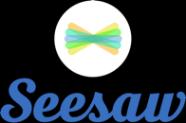
Welcome to Year 6
The Year 6 team is Miss Richardson, Miss Bolton and Mrs Bullerwell. We are so excited for the year ahead! Also, a reminder that Hawkhirst takes place 9th – 11th October.


